“Shape without form, shade without color,
Paralyzed force; gesture without motion.” – T.S. Eliot
Noise without Word.
After Solomon died, his Kingdom was split in two – the Northern Kingdom of Israel, and the Southern Kingdom of Judah.
Solomon’s son, Rehoboam, reigned over Judah. He lived in Jerusalem, where Solomon built the temple of the Lord, the God of Abraham, Isaac, and Jacob.
In the North, Jeroboam reigned over Israel. The Kings of Israel were masters of noise.
Noise-making, then and now, has benefits. You see, Jeroboam was worried. As long as the God of Abraham, Isaac, and Jacob was the God of Israel, then Jeroboam’s people would travel to Jerusalem, Rehoboam’s home. Year after year they would trek to the Temple to offer sacrifices. Year after year they would trek to Rehoboam’s home. So Jeroboam was worried.
Now the God of Abraham, Isaac and Jacob was not like other gods. You couldn’t just build a temple anywhere for the God of Israel. This God spoke. And this God told the Israelites to build one temple, in one city. This God required one worship.
Other gods were just the opposite; the more the merrier! A King could build temple after temple, holy site after holy site, install priest after priest for these other gods. And though these other gods did not speak, they made a lot of noise.
So Jeroboam gave them noise. Lots of noise. Like the Israelites before him, he fashioned his own god rather than wait for the God of Moses. Like the Israelites at Sinai, Jeroboam cast a golden calf. But not just one. He cast two, and placed them on the Northern and Southern edges of his kingdom, in Dan and Bethel. He built them Temples. He gave them priests.
And he said to the people, “you have gone up to Jerusalem long enough. Here are your gods, O Israel, who brought you up out of the land of Egypt.”
Just like that, Jeroboam changed their history. He exchanged the God of Exodus for cheap imitations. And unsurprisingly, the people forgot their history. They forgot the story of true Exodus; they lost the God who sets free. They exchanged truth for imitation, form for shape, color for shade, Word for noise.
In changing their history, Jeroboam changed their worship. The gods who stole their history gave them spectacles. And so the people exchanged true worship for spectacle. They went about with spectacle in their eyes, and noise in their ears.
So they silenced the God of David. Jeroboam built sacred sites in all the high places across Israel. He installed priests to offer sacrifices to his gods. And so, all across Israel, from Dan to Bethel, noise filled the air. No one could hear the Word of the Lord, the God of David. All was imitation, mimicry, spectacle, and noise.
This was the way of Jeroboam.
After Jeroboam, all the Kings of Israel followed his way. Nadab, Baasha, Elah, Zimri, Omri, all of them “walked in the way of Jeroboam and in the sins that he caused Israel to commit, provoking the Lord, the God of Israel, to anger by their idols.” More Kings made more gods. More priests made more spectacles. More prophets made more noise. And the God of Abraham, Isaac, and Jacob was drowned out. No one could hear the Word of the Lord.
Of all the Kings of Israel, Ahab was the noisiest. Like the others, he “walked in the sins of Jeroboam.” Ahab and his wife Jezebel built a temple to Baal in the heart of the land, in Samaria. They raised poles to Asherah throughout Israel. And so they filled the land with noise.
Ahab did more to provoke the anger of the Lord, the God of Israel, than had all the Kings of Israel before him.
The gods of Ahab and Jezebel were happy. The God of Israel was drowned out. Noise. But no one could hear the Word of the Lord. Noise without Word.
And then, the Word of the Lord came to Elijah. The Word of the Lord declares a drought. On Mount Carmel, the Word of the Lord silences the prophets of Baal. Baal’s worship is a spectacle; but like all spectacles, it can deliver no fire. And so the Word of the Lord comes and rains fire, and then fires rain.
On Mount Carmel, Elijah mocks Baal’s spectacle. Elijah’s words called down signs and wonders from the sky. Consuming fire rains down. Elijah’s words condemn Baal’s noisemakers. The Word is proclaimed. And the Wordless noise is silenced by the Lord’s Word.
Or so it seemed.
(The next day) Jezebel sent a messenger to Elijah, saying, “So may the gods do to me, and more also, if I do not (silence you) by this time tomorrow.”
The noise returns. The noisy gods declare vengeance. They are not satisfied with silencing the Word through noise, or stealing Israel’s history through mimicry. Now they must parody the Law of the Lord. And so, Jezebel vows to execute the law of noise. Noise without Word enacts law without Justice.
Elijah despairs. The day after the consuming fire on Carmel, he flees for his life. He wanders out into the wilderness, out of the kingdom of the gods of noise, and collapses under a bush. He begs the Lord to take his life. He flees the land of noise, mimicry, and parody. He flees the law without Justice, and begs for mercy from the God of Abraham, Isaac, and Jacob. Better to die at the Word of the Lord than at the decree of the gods of noise. So he cries out:
Enough! Now, O Lord, take away my life, for I am no better than my ancestors.
But the Lord withholds mercy. The Lord will not take his life away. The Lord will not let Elijah abandon his gifts, though they afflict him; though he is no better off with these gifts than his ancestors were with theirs. The Lord will not take back Elijah’s gift of life. He is harassed by the gift of life. And he is afflicted with the gift of prophecy.
God will not take his life. Instead, God restores it. Angels bring him food.
And Elijah got up, and ate and drank; then he went in the strength of that food forty days and forty nights to Sinai, the mount of God.
Elijah feasts on food from heaven, like the manna in the wilderness. And like the manna, which sustained Israel forty years, Elijah’s food sustains him forty days.
Forty days, fasting. Forty days, trudging through wilderness. Forty days, back through the years to the site where God created Israel. Forty days, back to Mount Sinai, where God afflicted Elijah’s ancestors with gifts of Word, Worship, and Law.
Elijah retraces the journey of his ancestors. He remembers the Exodus, Moses, the encounter in the wilderness. Elijah returns. He finds a cave and collapses with exhaustion.
Then the Word of the Lord came to him, saying, “What are you doing here, Elijah?” He answered, “I have been very zealous for the Lord, the God of hosts; for the Israelites have forsaken your covenant, thrown down your altars, and killed your prophets with the sword. I alone am left, and they are seeking my life, to take it away.”
For forty days, he has staggered to the edge of his life. For forty days, he has fasted to his innermost thoughts. For forty days, he has remembered his story. And there, where the Word of the Lord meets him, he pleads his case.
I was zealous, and yet…
And yet, your people have forsaken your covenant. They exchanged your Law for parody – a law without justice.
And yet, your people have thrown down your altars. They exchanged your Worship for spectacle – a worship without fire.
And yet, your people have killed your prophets. They exchanged your Word for noise.
“Shape without form, shade without color,
Paralyzed force; gesture without motion.”
Noise without Word.
Ours is an age of noise. We exchange our history for comforting lies of other gods. We exchange our worship for spectacles. We exchange true justice for parodies, imitations, mimicry. We fill our lives with noise. We silence the Word of the Lord.
Sometimes we expect God to cut through the noise. We look for the consuming fire of Mt. Carmel. If only God would upset our slumber with force – the rushing wind, the unsteady earth, the raining fire.
The Word said to Elijah, “Go out and stand on the mountain before the Lord, for the Lord is about to pass by.” Now there was a great wind, so strong that it was splitting mountains and breaking rocks in pieces before the Lord, but the Lord was not in the wind; and after the wind an earthquake, but the Lord was not in the earthquake; and after the earthquake a fire, but the Lord was not in the fire; and after the fire a sound of sheer silence. When Elijah heard the silence, he wrapped his face in his mantle and went out and stood at the entrance of the cave.”
Much later in this story, the Word of the Lord came again.
The Word became flesh, and made His dwelling among us.
The Word ascended another mountain. And the Word gave another sign, feeding five thousand with five loaves and two fish. The Word descended the mountain heights, and worked another wonder, walking on water and calming the depths.
And then, he delivered a teaching. And that teaching mystified the people. People living among parody and imitation and mimicry. People with eyes full of spectacle and ears full of noise.
I am the living bread that came down from heaven. Whoever eats of this bread will live forever; and the bread that I will give for the life of the world is my flesh.
Eat my flesh. It is an odd teaching. It is an unsuspected teaching. It is a difficult teaching. And so, many left the Word who came down from heaven and returned to the noise.
So The Word, the bread that came down from heaven, turned to his disciples, and asked them a question:
“Do you also wish to go away?” Simon Peter answered him, “Lord, to whom can we go? You have the words of eternal life.”
“Shape without form, shade without color,
Paralyzed force; gesture without motion.”
Noise without Word.
Ours is an age of noise. We exchange our history for comforting lies of other gods. We exchange our worship for spectacles. We exchange true justice for parodies, imitations, mimicry. We fill our lives with noise. We silence the Word of the Lord.
But the Word comes nevertheless, not in an earthquake or fire or rushing wind, but in this man, Jesus the Christ. And he offers himself to us; eat from me, drink from me.
How odd. No spectacle of noisy gods. Just this peculiar sign, this unexpected wonder.
“Whoever eats of this bread will live forever; and the bread that I will give for the life of the world is my flesh.”
And he turns to his disciples, and he asks: “Do you also wish to go away?”
And we, with eyes full of spectacle and ears full of noise, despairing for our lives, afflicted with our gifts and our calls, like Elijah in the wilderness, respond:
“Lord, to whom can we go? You have the words of eternal life.”
Note from the Editor: We appreciate the opportunity to revisit this reflection, which originally appeared on Wesleyan Accent in 2017.


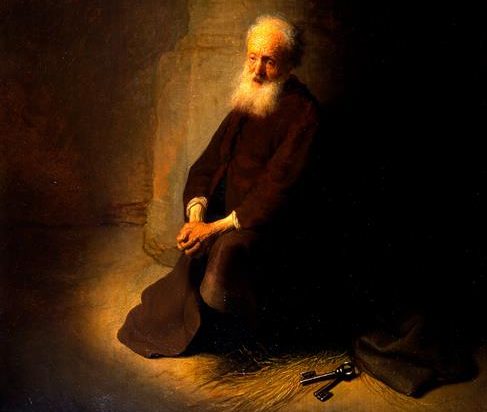

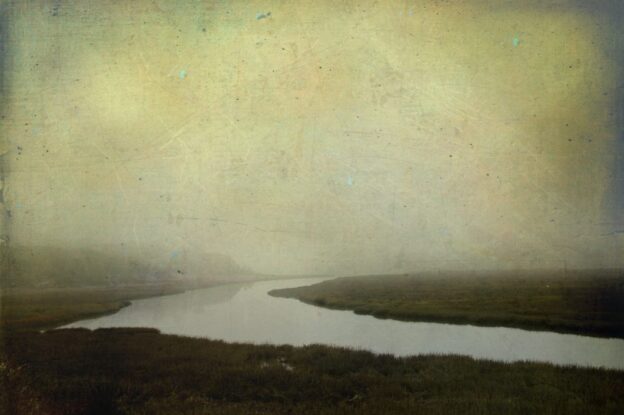
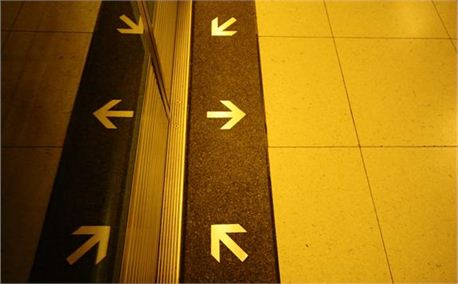
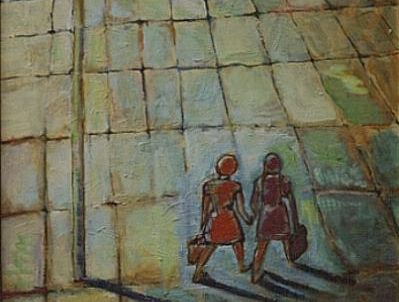
 Once a professor of theology at the University of Paris took the leading position of the Franciscan Order. He did so amidst the anti-mendicant, which meant anti-Franciscan, controversy. Two years into his term, Bonaventure journeyed to Mt. Alverna in Tuscany, where St. Francis, the founder of his Order, saw the six-winged seraph and received the stigmata. There Bonaventure received another sort of vision; he conceived the Itinerarium Mentis in Deum – The Journey of the Soul into God.
Once a professor of theology at the University of Paris took the leading position of the Franciscan Order. He did so amidst the anti-mendicant, which meant anti-Franciscan, controversy. Two years into his term, Bonaventure journeyed to Mt. Alverna in Tuscany, where St. Francis, the founder of his Order, saw the six-winged seraph and received the stigmata. There Bonaventure received another sort of vision; he conceived the Itinerarium Mentis in Deum – The Journey of the Soul into God. 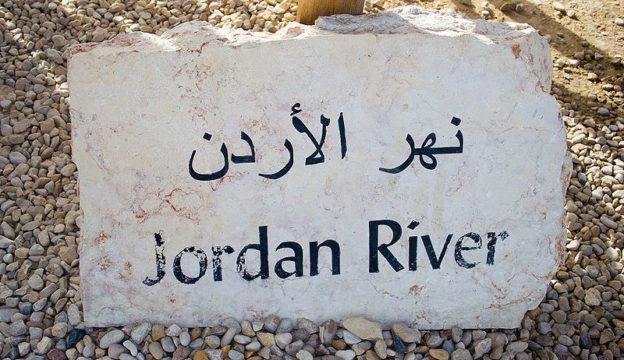
 And the same people came to the shores of the Jordan, but without the same Moses. In his place was his servant, Joshua, son of Nun, voice of the Lord. They came with an ark, designed by the same God. Expertly crafted. That ark, the ark of the covenant, was the footstool of the throne of the same God who parted the Red Sea.
And the same people came to the shores of the Jordan, but without the same Moses. In his place was his servant, Joshua, son of Nun, voice of the Lord. They came with an ark, designed by the same God. Expertly crafted. That ark, the ark of the covenant, was the footstool of the throne of the same God who parted the Red Sea.